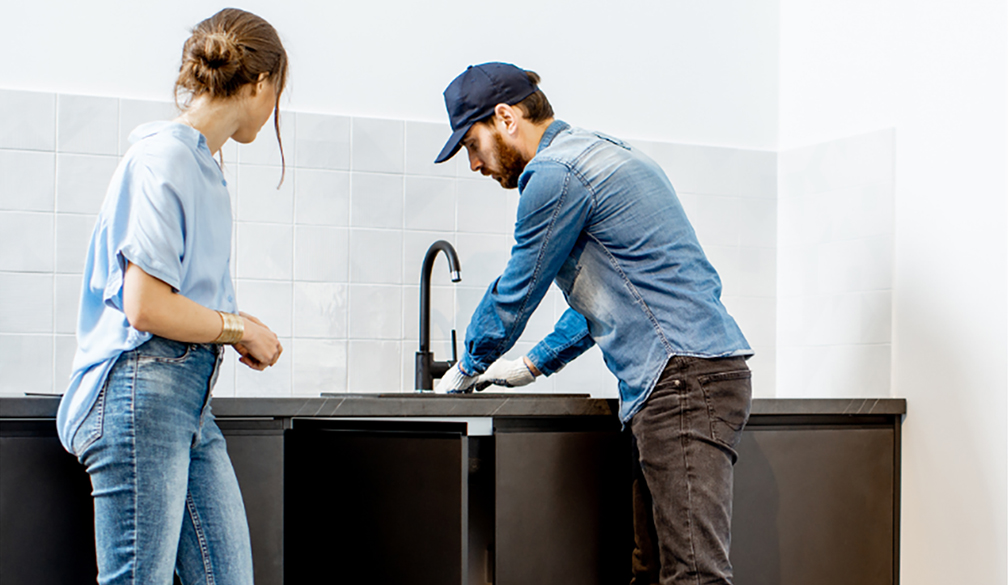Clearing Clogged Drains: Your Ultimate Guide to a Smooth-Flowing System

A clogged drain can quickly turn into a homeowner's nightmare, causing inconvenience, foul odours, and potential water damage. But fear not! In this comprehensive guide, we'll walk you through the best methods to tackle those stubborn clogs and restore your drains to a smooth, free-flowing state. From preventive measures to DIY solutions and professional interventions, we've got you covered.
Prevention is Key
An ounce of prevention is worth a pound of cure, and this saying rings especially true when it comes to clogged drains. Here are some preventive measures from expert plumber in the North Shore to keep your drains clear:
Use Drain Covers: Placing drain covers over your sinks and shower drains can effectively prevent hair, soap scum, and debris from entering and clogging your pipes.
Dispose of Grease Properly: The professional plumber in the North Shore suggests that grease and oils can solidify in your pipes, causing major blockages. Instead of pouring grease down the drain, let it cool and dispose of it in the trash.
Regular Cleaning: Make it a habit to clean your drains regularly. Flush them with hot water or a mixture of vinegar and baking soda to help prevent buildup.
DIY Solutions
If you're dealing with a minor clog, you might be able to resolve it using some simple DIY methods. Here are a few options to try:
Boiling Water: For light clogs, pouring boiling water down the drain can help break down and wash away accumulated debris.
Baking Soda and Vinegar: Combine half a cup of baking soda with half a cup of vinegar. Pour it down the drain, let it fizz for about 15 minutes, then flush with hot water.
Plunger Power: A plunger can work wonders for clogs in sinks, tubs, and toilets. Create a tight seal and use firm, controlled plunges to dislodge the clog.
Manual Removal: In some cases, you might be able to manually remove hair or debris using a wire hanger or drain snake.
Chemical Drain Cleaners: Proceed with Caution
Chemical drain cleaners can be effective for breaking down clogs, but they can also be harsh on your pipes and the environment. If you choose to use them, follow these guidelines:
Read Instructions Carefully: Always follow the manufacturer's instructions and safety precautions.
Ventilation: Ensure proper ventilation while using chemical cleaners to avoid inhaling fumes.
Use Sparingly: Don't rely solely on chemicals. Reserve them for stubborn clogs and use them sparingly to prevent pipe damage.
Eco-Friendly Drain Maintenance
If you're environmentally conscious, there are several eco-friendly practices you can incorporate into your drain maintenance routine:
Use Biodegradable Cleaners: Consider for biodegradable, enzyme-based cleaners that are safe for both your plumbing and the environment.
DIY Drain Cleaners: Utilize natural DIY solutions like vinegar and baking soda or salt and baking soda for regular maintenance.
Avoid Chemicals: Minimize the use of harsh chemical drain cleaners that can negatively impact aquatic ecosystems.
When to Call in the Pros
If your efforts fail or you suspect a severe clog, it's time to call in the professionals. Here are some signs that it's time to seek expert help:
Recurring Clogs: If clogs keep coming back, it could be a sign of a more serious issue deeper in your plumbing system.
Multiple Clogged Fixtures: If multiple drains or toilets are clogging simultaneously, there might be a mainline blockage.
Foul Odors: Persistent foul odors coming from your drains could indicate a clog that needs professional attention.
Professional Solutions
When professional intervention is needed, plumbers have an arsenal of tools to tackle even the toughest clogs:
Hydro Jetting: This high-pressure water jetting technique can clear out stubborn clogs and clean the inside of your pipes.
Video Inspection: Plumbers use specialized cameras to inspect the inside of your pipes, helping to pinpoint the exact location and cause of the clog.
Pipe Augers: Also known as drain snakes, these tools can reach deep into pipes to break up and remove clogs.
Maintenance for the Future
Once you've successfully cleared your clogged drain, it's important to implement some maintenance practices to prevent future clogs:
Regular Flushing: Flush your drains with hot water regularly to help prevent buildup.
Hair Catchers: Invest in hair catchers for your showers and tubs to prevent hair from going down the drain.
Avoid Problematic Materials: Be cautious about what you let go down the drain. Coffee grounds, eggshells, and non-flushable items should be disposed of properly.
Final thoughts
Dealing with a clogged drain doesn't have to be a stressful ordeal. By following these preventive measures, DIY solutions, and knowing when to seek professional help, you can keep your drains clear and your plumbing system in top shape. Remember, a little maintenance goes a long way in preventing the inconvenience and potential damage of clogged drains. Thus, all you need is to hire a professional plumber to do the job.




